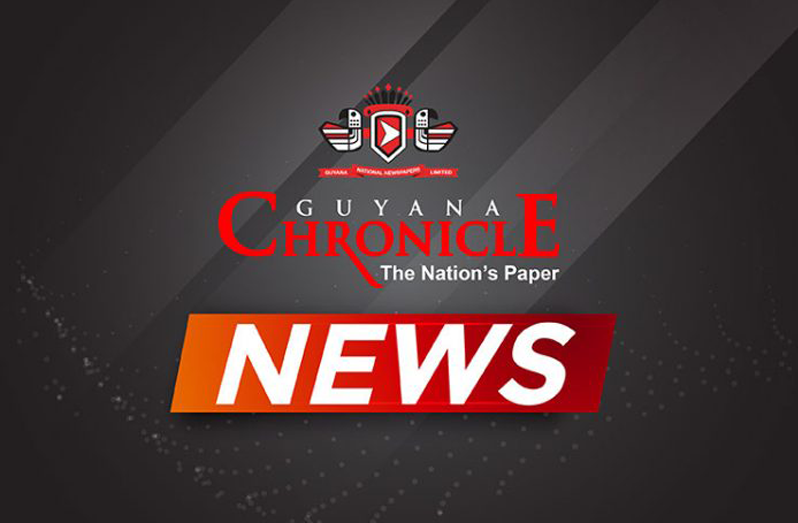THE IMPACT of books and reading is difficult to measure on a short-term basis. The impact of books and reading is sometimes slow and incremental, but very explosive, exploding further down the road, as seen in the progress and development of society and country. Guyana’s First Street Book Fair has the potential of becoming the country’s engine of growth and development.
Guyana’s First Street Book Fair was staged on Friday, February 18, 2011, in the Main Street avenue opposite the Ministry of Culture, Youth & Sport.
The theme for that event was ‘A Reconnection to Books’.
The organisers (The Mashramani Secretariat, Ministry of Culture, Youth & Sport and partners) perceived the need for that reconnection, and hence the street book fair, putting books within reach, within the pathway of readers, potential readers and bibliophiles.
Guyana’s First Street Book Fair also has the potential of staking Guyana’s claim to be named world book capital city.
UNESCO’s World Book Capital City for 2011 is Argentina’s capital, Buenos Aires (the second time in a decade that a city in South America was so honoured).
This concept of so naming a city each year was initiated in 2001 to extend UNESCO’s enterprising mandate, which is to promote reading, to encourage publishing and the protection of intellectual property through copyright.
Madrid (in Spain)was named the first World Book Capital City in 2001, followed by Alexandria (Egypt) in 2002 and New Delhi (India) in 2003. Other cities gaining that recognition were the city of Antwerp (Belgium) 2004; the city of Montreal (Canada) 2005; Turin (Italy) 2006; Bogota (Colombia) 2007, Amsterdam (The Netherlands) 2008; Beirut (Lebanon) 2009; and Ljubljana (Slovenia) 2010.
Guyana’s First Street Book Fair is not our only claim to becoming World Book Capital. Over the years, within this new millennium, Guyana has implemented a number of initiatives to promote books and reading.
In February 2010, the government of Guyana, through the establishment of The Caribbean Press, released the first 11 reprints of a projected 36 titles labelled ‘The Guyana Classics Library’.
The idea of The Caribbean Press surfaced during Guyana’s hosting of the highly successful Carifesta X in 2008. The idea was later fleshed out by President Bharrat Jagdeo and Professor David Dabydeen. A few of the February-released titles in the Guyana Classics Library include ‘The Discovery of Guiana’ by Sir Walter Raleigh, first published in 1595; ‘The Coolie, His Right and Wrongs’ by John Edward Jenkins; ‘Canoe and Camp Life in British Guiana’ by Charles Barrington Brown; ‘The Chinese in British Guiana’ by Sir Cecil Clementi; ‘The Asylum Journal’ by Robert Grieve; and ‘Guianese Poetry: Covering the Hundred Years’ Period, 1831-1931’ by N. E. Cameron.
On December 16, 2010, The Caribbean Press launched a second set of the Guyana Classics Library books, including ‘Indian Notices’ by William Hilhouse; ‘The Portuguese of Guyana’ by Mary Noel Menezes; ‘The Demerara Martyr’ by Edwin Angel Wallbridge; and ‘Lutchmee and Dilloo’ by John Edward Jenkins.
In 2008, Guyana hosted the tenth Caribbean Festival of Arts (Carifesta). A major feature of this festival was week-long book fair, where a record 40 books were launched, including twenty-two by written by Guyanese.
That is an awesome achievement for this young nation, given that for the first decade as an Independent nation (1966-1976), only a handful of books were published. So, the writing, producing and launching of 22 books on one occasion is astounding, indicative of the direction of our literature.
What is more heartening was that local writers accounted for more than half of those twenty two titles.
A major institution that is well entrenched in the psyche of Guyanese is the National Library, which celebrated its centenary in 2009 with year-long activities to “empower the nation through literacy.” The National Library has five branches, numerous book deposits, and over twenty one centres across the country.
Another institution spreading its literary tentacles across Guyana is the Guyana Book Foundation. The Foundation has been hosting annual book fairs, reaching out to thousands of readers and potential readers in communities deprived of that climate for reading. The Foundation also assists in the publication of children literature.
There are numerous other initiatives promoting books and reading. For inclusion are the production of educational material by National Centre for Education, Research and Development (NCERD); the Georgetown Research and Reading Centre; Varga Foundation with its inspiring reading programme, ‘On the Wings of Words’; the Guyana Prize for Literature; The Guyana Annual magazine; The Journey, an ongoing series of literature evenings hosted by the National Art Gallery, Castellani House; and two television programmes on books and literature, ‘Oral Tradition’ and ‘Between the Lines’, produced by yours truly.
And the list goes on (forgive me any sins of omission). The listing of all these initiatives was triggered by Guyana’s First Street Book Fair. All the initiatives fall within the ambit of criteria set out by UNESCO’s ‘world book capital city’.
The success of Guyana’s First Street Book Fair can be credited also to the vision of the exhibitors. That vision of promoting books and reading, putting the joy back into reading was tangibly expressed by the National Library, the University of Guyana Library, the Guyana Book Foundation, NCERD, the Guyana Heritage Society (reprinting rare books), the Ministry of Culture, Youth & Sport, Guyana Entertainment Magazine (GEM), and Writers in Concert (WICK) headed by yours truly.
Guyana’s First Street Book Fair was commended in many quarters, local and foreign. This innovation, this reconnection to books has the potential of qualifying Georgetown, Guyana, as a next ‘world book capital city’.
WHAT’S HAPPENING:
• Coming in March, Guyana’s celebration of World Poetry Day, and
• Also in March, for the first time, Guyana’s celebration of World Storytelling Day; apart from interesting stories from around the world, there will be an emphasis on stories form Guyana like the Anancy Story, the Balgobin Story, the jumbie story, among others.
(To respond to this author, either call him on (592) 226-0065 or send him an email: oraltradition2002@yahoo.com)




.png)









